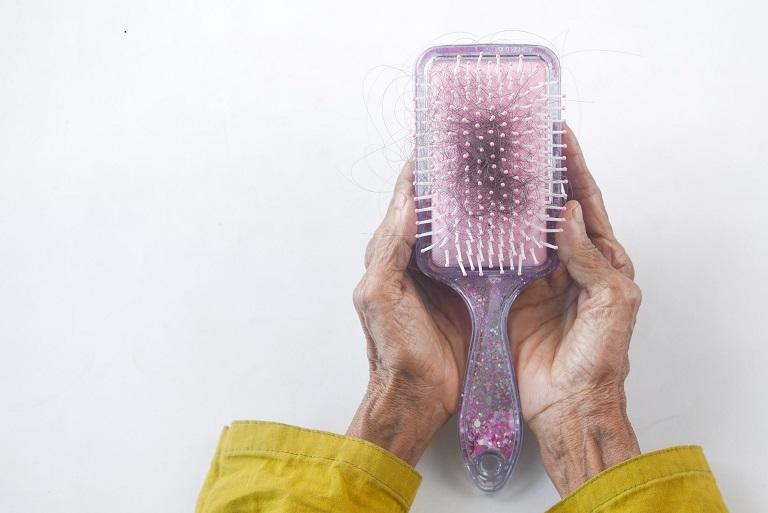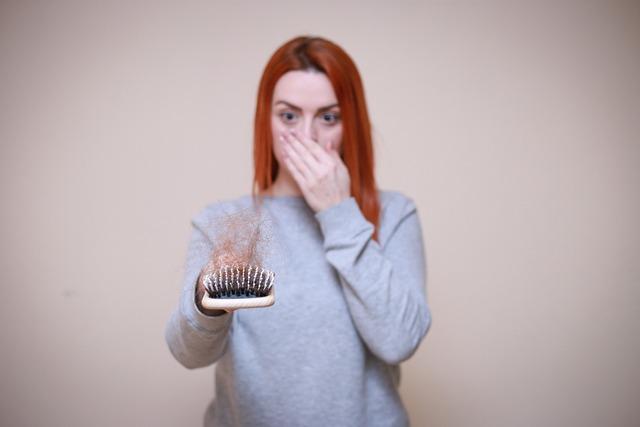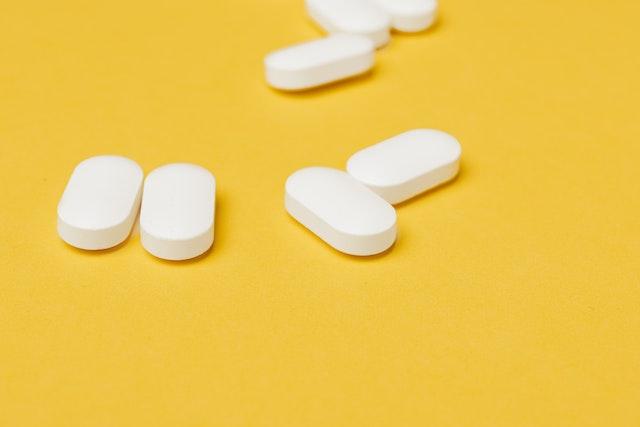
Hair loss is a common concern that can significantly impact one’s self-esteem and quality of life. While multiple factors contribute to hair loss, including genetics, hormonal imbalances, and nutritional deficiencies, emerging research indicates that vitamin D deficiency may play a role in hair health and loss. This article will help you explore the connection between vitamin D deficiency and hair loss, exploring the mechanisms involved and the potential impact on hair growth.
Importance of Vitamin D Supplementation

While sunlight exposure and dietary sources can provide vitamin D, supplementation may be necessary in cases of deficiency or when natural sources are limited, such as during winter or for individuals with limited sun exposure. The supplements typically contain either vitamin D2 or D3.
Vitamin D2 and D3 supplements can effectively raise vitamin D levels in your body, although vitamin D3 is generally considered more potent and better absorbed than vitamin D2. However, both forms can be beneficial for you in correcting and preventing vitamin D deficiency when used appropriately and as directed by a healthcare professional.
You might also like to read: What Are The Food Sources of Vitamin D?
What Does Vitamin D Do To Your Body?
Vitamin D is a vital nutrient that plays a crucial role in numerous bodily functions. It helps you in calcium absorption and bone health. However, vitamin D also influences your immune system function, cell growth, and differentiation, making it essential for overall health and well-being.
1. Vitamin D and Hair Growth

Emerging evidence suggests vitamin D may regulate your hair growth cycles, follicle health, and immune function within the scalp.
2. Hair Growth Cycle Regulation
Vitamin D receptors are present in hair follicles, and vitamin D may regulate the transition between these phases. Adequate vitamin D levels support the normal progression of your hair growth cycle. This ensures optimal hair growth and minimizes hair shedding.
3. Immune System Modulation
Vitamin D has immunomodulatory effects, helping regulate the body’s immune response. In the context of hair loss, vitamin D deficiency may impact your immune system function within the scalp, potentially leading to autoimmune conditions like alopecia areata.
4. Inflammation and Oxidative Stress
Vitamin D deficiency has been associated with increased inflammation and oxidative stress in your body. Chronic inflammation and oxidative stress can disrupt hair follicle function, leading to hair thinning and loss. Adequate vitamin D levels may help reduce inflammation and oxidative stress, supporting healthy hair follicles.
You might also like to read: How to Relieve Stress -15 Proven Techniques
Does Vitamin D Deficiency Cause Hair Loss?

Yes, vitamin D deficiency has been linked to hair loss. While the exact relationship between vitamin D and hair loss is not understood, research indicates that vitamin D plays a role in the hair growth cycle. Vitamin D receptors are present in hair follicles, and it is believed that vitamin D helps regulate your hair growth.
Forms of Vitamin D Supplements
Vitamin D supplements are commonly used to address deficiencies and maintain adequate levels of this essential nutrient in your body. Here are some key points about vitamin D supplements:

1. Types of Vitamin D
The two main types of vitamin D supplements are vitamin D2 (ergocalciferol) and vitamin D3 (cholecalciferol). Vitamin D3 is preferred, as it is more simply absorbed and utilized by the body.
2. Dosage
The recommended daily vitamin D intake varies depending on age, sex, and individual needs. For most adults, the recommended daily dose of vitamin D is 600 to 800 international units (IU). However, you may require higher doses to correct deficiencies or, as a healthcare professional advises.
3. Sources of vitamin D
Vitamin D can be obtained from dietary sources like fatty fish (salmon, mackerel), egg yolks, and fortified foods (milk, cereals). However, meeting optimal levels through diet alone can be challenging, particularly for individuals with limited sun exposure.
4. Sun Exposure
Sunlight is a natural source of vitamin D, as the skin can produce it when exposed to UVB rays. However, factors such as geographical location, season, time of day, and skin pigmentation can affect your skin’s ability to produce vitamin D from sunlight. Therefore, supplementation is often necessary, especially during winter months or if you have limited sun exposure.
Foods Rich in Vitamin D

Several foods naturally contain vitamin D or are fortified with it. Here are some examples:
- Fatty Fish: Fatty fish such as salmon, mackerel, sardines, and trout are excellent sources of vitamin D. Consuming these fish can provide significant nutrients. For example, a 3 ounce serving of cooked salmon can include around 450 international units (IU) of vitamin D.
- Cod Liver Oil: Cod liver oil is derived from the liver of cod fish and is a rich source of vitamin D. Just one tablespoon of cod liver oil can provide you over 1,300 IU of vitamin D.
- Mushrooms: Certain types of mushrooms, such as shiitake and maitake mushrooms, can naturally synthesize vitamin D when exposed to sunlight. This makes them a rare plant-based source of the vitamin. The vitamin D content in mushrooms can vary depending on the growing conditions and exposure to sunlight.
- Egg Yolks: Egg yolks contain little amounts of vitamin D. However, the content can vary depending on the diet of the hens. Eggs from hens fed a diet high in vitamin D or specifically enriched with it can have higher vitamin D levels.
- Fortified Foods: Many foods are fortified with vitamin D to help you meet your daily requirements. Common examples include fortified milk (cow’s milk, soy milk, almond milk), fortified orange juice, fortified cereals, and fortified dairy products like yogurt and cheese.
Takeaway
If you have vitamin D deficiency or are experiencing hair loss, it’s recommended to consult with a healthcare professional. They can assess your symptoms, conduct necessary tests, and determine the
most appropriate course of action, including addressing deficiencies and recommending suitable treatment options for hair loss.
A hair transplant for women can be ideal for those experiencing significant hair loss or thinning hair. Still, it is essential to consult with a qualified professional to determine the best course of action based on your needs and goals.